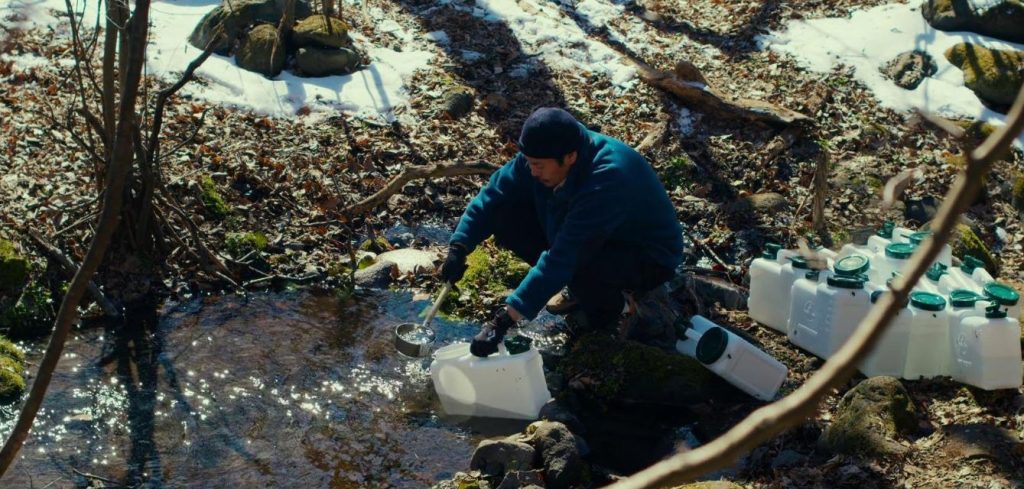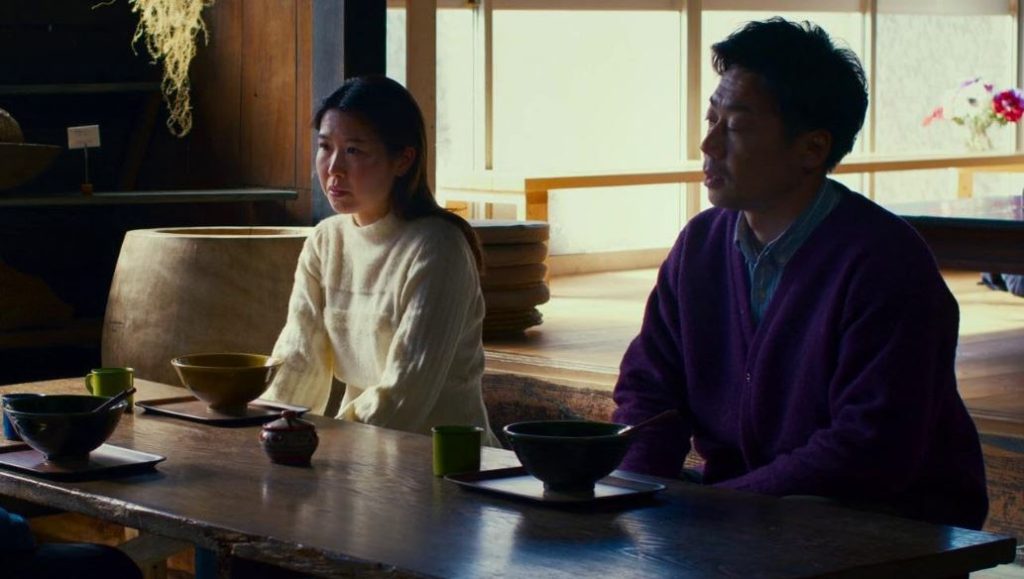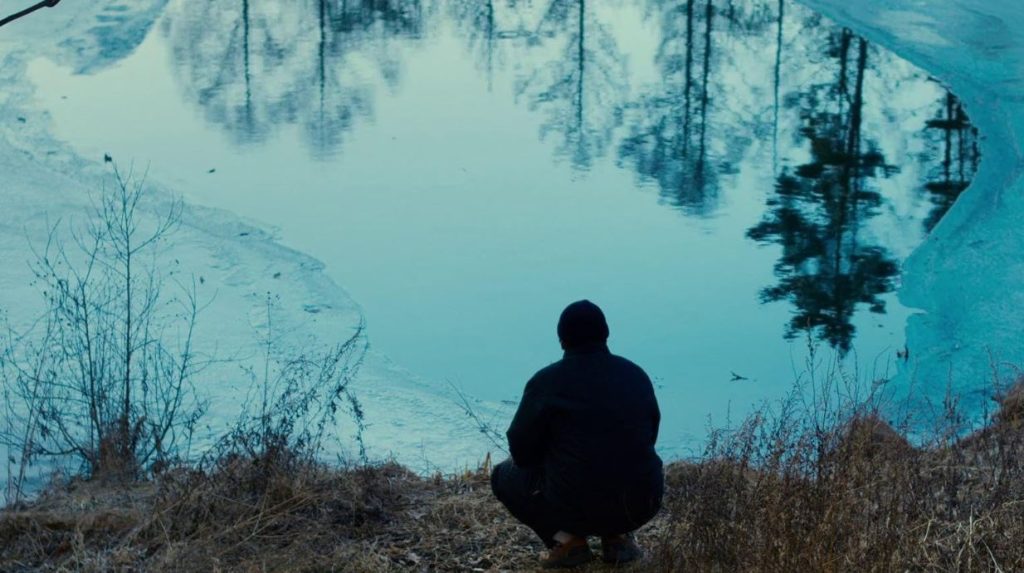
Evil Does Not Exist, the latest feature from celebrated auteur Ryusuke Hamaguchi, has a title reminiscent of a horror movie, much like Bong Joon-Ho’s Parasite. Each in their own way, both are in fact just that, horror movies with a shared monster in common: capitalism. In Hamaguchi’s quietly unsettling film, this ravenous beast comes to the small village of Mizubiki in the form of Playmode, a real estate development company that has set its sights on the village as a lucrative location for “glamping” (a portmanteau of “glamorous camping” that I regret to say I had heard even before the movie).
Evil is a very deliberate slow-burn, beginning with a long tracking shot of a sky framed by the clawlike branches of barren winter trees. Coupled with an eerie score by Hamaguchi’s Drive My Car collaborator Eiko Ishibashi (with whom the story was conceived and developed by Hamaguchi), this opening sequence announces what is to come in a manner similar to the deeply unsettling title sequence of last year’s best film, The Zone of Interest. The imagery in Evil’s opening is crisp and beautiful—you can almost smell the chill winter air—but there is an underlying sense of menace, of impending and inevitable doom.
This gives way to a prosaic depiction of the daily life of the widower Takumi (Hitoshi Omika), his daughter Hana (Ryo Nishikawa), and the other people of the village. We see Takumi go about his daily work of chopping firewood and gathering water from the spring, which he supplies to the local noodle shop. There is a strong sense of harmonious living established in these quiet, deceptively mundane scenes, and the distant gunshots of deer hunters heard throughout seem to foreshadow the imminent disruption of that harmony.

At a town hall meeting that serves as the centerpiece of the movie, we meet Takahashi (Ryuji Kosaka) and Mayazumi (Ayaka Shibutani), two representatives of Playmode who have been sent from Tokyo to assuage the concerns of the villagers about the pollution of their home that will result from the development, without actually addressing and rectifying any of these concerns. There is no time to ensure that the septic system will be sufficient to avoid polluting the pure spring water with human waste, for example, because the company wants to take advantage of Covid subsidies.
The CEO of Playmode, who evidently could not be bothered to attend the meeting personally, enlists his two delegates to gain the trust and support of Takumi in order to persuade the other villagers. As they shadow Takumi and get to know his way of life, we see how the presence of these tourists disrupts his easy, practiced flow. When they come upon him chopping firewood, a task we have seen him accomplish with ease earlier on, the work takes on a burdensome self-consciousness and becomes sloppy and imprecise as they watch. Takahashi is eager to try his hand at it, just as we later see Mayazumi tentatively sampling the pure spring water, and soon he is declaring a desire to stay and live in the village, just as many a tourist will dream of a romanticized life in a city in which their only actual experience is the luxuriant dining and leisure of a vacation.

Evil is full of subtle, telling details like this; small, deceptively simple moments that linger in the mind long after viewing, practically demanding a second watch. When Takumi delivers the water to the noodle shop and subsequently places an order, he is informed he is still 180 yen short, a hint of the insidious nature of capitalism even before Playmode comes to the village… or perhaps they only stand on this formality because the moneyed outsiders are watching. We see the contrast in the loquacious, ingratiating mannerisms of the Tokyo people as compared to the more stoic and taciturn Takumi as well; while Takahashi asks permission of his colleague to smoke in the car and, even after receiving the reluctant go-ahead, elects not to, Takumi thinks nothing of lighting up in his own vehicle, having not been forced to conform to such modern conventions in his daily life.
So are the Tokyo people and Playmode the evil of the title, an encroaching force set to destroy the good life enjoyed by the people of Mizubiki? The word “not” in the opening title is offset in a different color than the rest, indicating that the message conveyed may be ironic, and that evil very much does exist; it exists in all of us, whether in the choices we make or the ways we react to that which we cannot choose. Or is the title more sincere, denying any true malevolence in our selfish, shortsighted human endeavors? Perhaps, good or evil, nature is ultimately indifferent to our attempts to change or harness it. Evil Does Not Exist raises more questions than it answers, as it should, and anyone who follows it to the abrupt but somehow inevitable gutshot of a conclusion will likely be pondering those questions for a very long time.
Leave a Reply